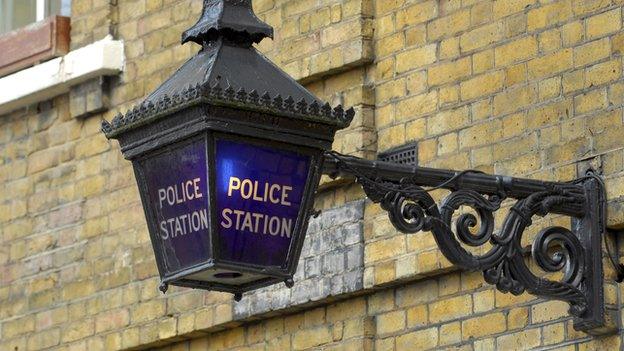Sex crime suspects deserve anonymity, MPs say
- Published
- comments
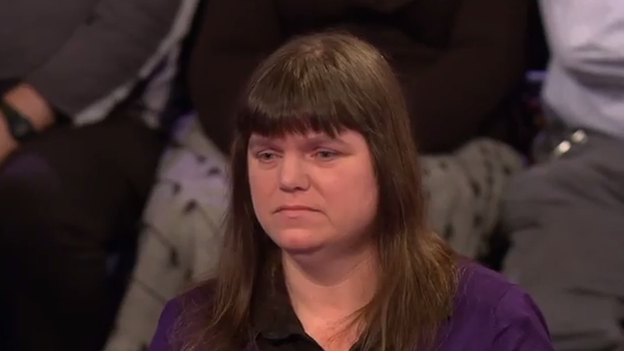
Jill Saward, who was raped in 1986, waived her right to anonymity to campaign on behalf of victims
There should be a statutory ban on identifying people who are arrested for sexual offences in England and Wales, a committee of MPs has said.
The Home Affairs Select Committee said sexual offence suspects deserved the right to anonymity, unless they were charged or police needed to name them.
There should be "zero tolerance" of their identities being leaked, unattributed, to the media, it added.
But Jill Saward, a victim of rape, called the suggestions "insulting".
Ms Saward, who waived her own right to anonymity after being raped in order to campaign for other victims, told the BBC Radio 4's Today programme that making a special case for sex crime suspects "implies that victims are lying".
The MPs report also said bail should initially be limited to 28 days.
The committee's report on police bail said the Crown Prosecution Service (CPS) should apologise to broadcaster Paul Gambaccini after he was kept on bail for 12 months over an allegation of historical sexual abuse before the case against him was dropped.
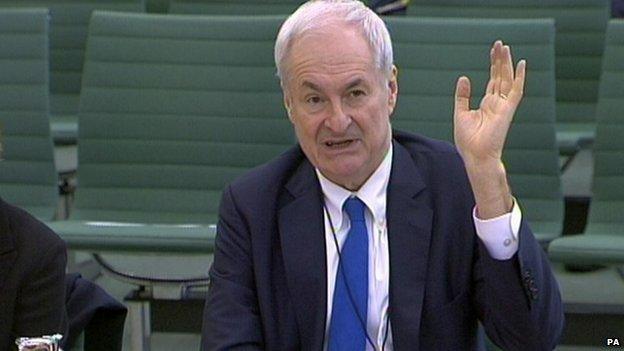
Paul Gambaccini previously told a committee of MPs that extended bails were a "misuse of power"
Committee chairman Keith Vaz said reform of police bail was "long overdue" and it was "unacceptable" that people could be kept on bail for months and then be told no action would be taken against them without any explanation.
In March Mr Gambaccini told the same committee that lost earnings and legal fees had cost him more than £200,000 as a result of him being kept on bail until the case was dropped against him in October.
Mr Vaz said: "Police use of the 'flypaper' practice of arresting someone, leaking the details, then endlessly re-bailing them in the vague hope that other people come forward is unacceptable and must come to an immediate end.
"We have seen how destructive this can be to a person's livelihood, causing irreparable reputational damage and enormous financial burden."
The committee said the identification ban would stay in force unless and until a suspect was charged or if police believed there were "public safety" reasons for naming them.
It said that if police wanted to release information about a rape suspect, for policing reasons, they should do so in a formal way.
Nigel Evans says it is wrong for people arrested for sexual offences to experience the "full glare of publicity" unless or until they are charged
It was "in the interests of the police, post-Leveson, to demonstrate that they understand the level of public distrust that has built up over the informal relationship between the police and the media", the report said.
Conservative MP Nigel Evans, who was cleared of nine sex offences last year, said: "I don't believe that people ought to be plastered all over every national newspaper just to fish other people out."
But Ms Saward, who was raped by a gang in 1986, said: "What this committee are suggesting is really insulting to victims and a really disappointing move."
She added: "We know that many people who are rapists are multiple rapists. They don't do this as a one-off and part of their modus operandi is to try to make sure there isn't enough evidence there.
"When one victim comes forward often there isn't enough evidence there, you need the evidence of other people."

Analysis: Danny Shaw, Home Affairs Correspondent
There are strong arguments on both sides of the debate about whether rape suspects should be identified before they are charged.
The proposal is likely to be opposed by victims' groups and by media organisations such as the Society of Editors, which says it would be a "serious mistake" to restrict information to which the public have a right to know.
When a suspected sex offender is named after arrest, that can encourage victims to come forward, as in the case of Max Clifford.
But it can also cause immense damage to the reputation of someone who may be innocent - and it's for that reason that the Home Affairs Committee believes suspects should be granted anonymity, just as victims of sexual offences are.

Peter Watt of the NSPCC said naming suspects gave other victims the strength to speak out.
"Rolf Harris, Max Clifford and others are possibly only behind bars for their vile crimes because of the ability of the police to name suspects," he added.
In response to the committee's conclusions on anonymity, the CPS said they do not name suspects before charges are made.
A spokesman said: "We have always said that the issue of anonymity is a matter for Parliament although, as the committee identifies, the police have given evidence that they may have good reasons for naming suspects pre-charge in exceptional cases."
'Explain decision'
The report called for the police to "use bail less, to investigate more thoroughly before arrest, and to finish investigations more quickly."
After the initial 28 days a decision could be taken by the police to re-bail, the committee said.
Under the proposals the police could apply to the courts for exemptions if they could show the investigation would be complex.
The MPs added that the CPS should apologise to Mr Gambaccini and explain why his case took so long when the original police investigation was dropped, for insufficient evidence, a month before he was arrested.
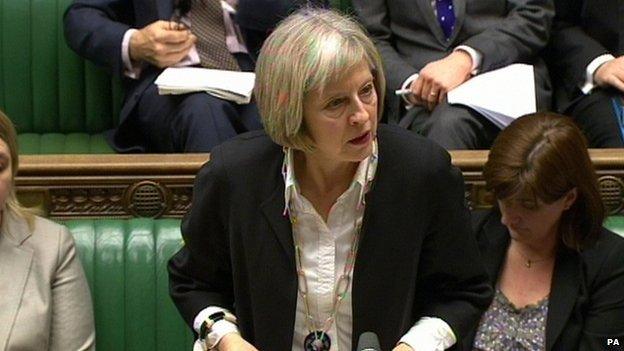
Home Secretary Theresa May proposed 28-day bail limits in December
The CPS responded: "We are happy to write to Mr Gambaccini to set out a chronology of CPS actions and to explain our decision and we will be doing so in due course but we are happy with the decision making his case."
Changes to police bail are currently being discussed by government, the CPS added.
Home Secretary Theresa May had recommended introducing an initial time limit on bail of 28 days in December.
Appearing before the Home Affairs Select Committee this week, Ms May said there was still some debate about whether it was appropriate for someone to remain anonymous until charged.
When pressed by the committee, external she agreed that "generally speaking" she supported anonymity, but there were exceptions, particularly where a case has to be built.
- Published20 March 2015
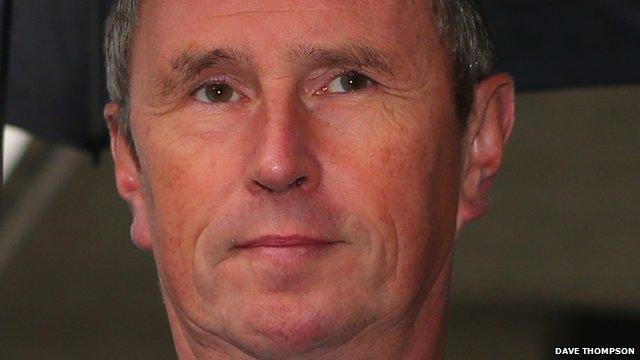
- Published3 March 2015
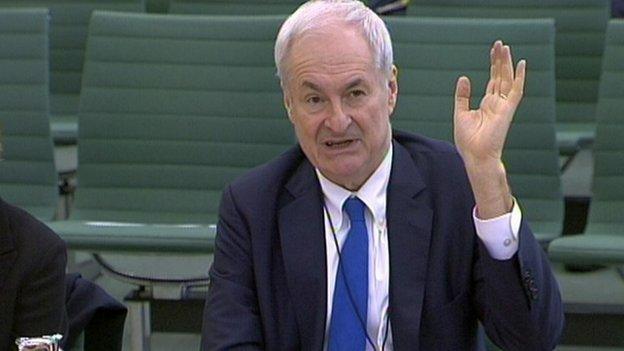
- Published18 December 2014
